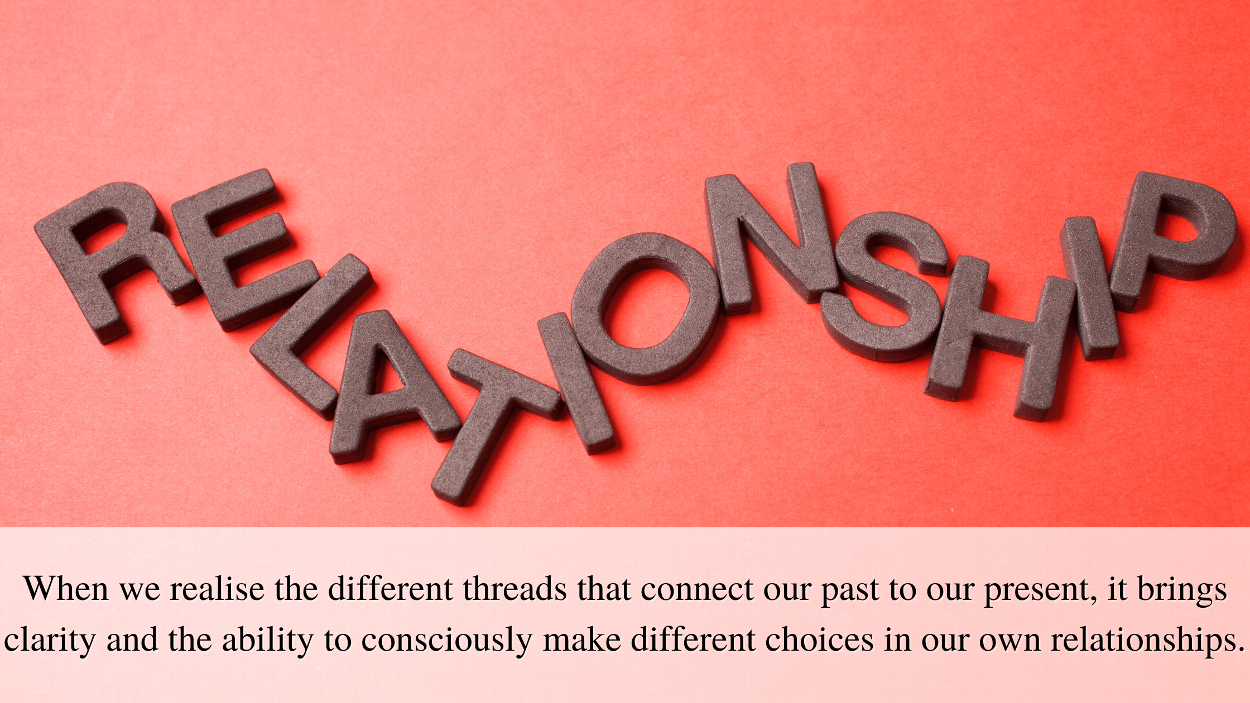Most of us don't realise just how much we learn about connection, communication and conflict long before we ever enter our first relationship.
It often begins with what we see as we grow up, meaning it's important to reflect on past friendships and family relationships in order to understand our behaviours, break negative cycles and build stronger, healthier connections when entering or maintaining romantic relationships.
Reflecting on the past
Looking back on our childhood can often reveal a lot about the ways we act and think now. Our earliest experiences often shape our expectations of future relationships, coping mechanisms when things go wrong and even our emotional availability.
Take a few moments to think about your childhood:
How did your parents or caregivers relate to each other?
How did they communicate? Not just through words, but tone, body language and actions?
How was conflict handled?
Were emotions openly expressed in your home or brushed aside?
If conflict in your household meant shouting or the silent treatment, you might find that in your own romantic relationships, you find yourself either avoiding confrontation or perhaps becoming defensive. If emotions weren't regularly discussed or expressed, then you might find you struggle to identify or express your own feelings as an adult.

Learn from past experiences, don't repeat them
Of course we can't change the past, but we can learn from it, break the mold and help ourselves not to repeat the same mistakes and see history repeat itself.
Many relationship challenges we face now can stem from behaviours we've unconsciously carried with us for years. When we take the time to reflect on these and give ourselves the power and permission to respond differently, it can help us to identify negative patterns in our behaviours and work to change them.
What did you learn about love, respect and emotional safety growing up?
How do you currently manage conflict and where do these tendencies come from?
Do you feel safe expressing your emotions? Do you allow others to do the same?
Are these lessons helping you or holding you back?

Breaking the cycle
It's important not to place the blame at the feet of our parents or caregivers. Like us, they were also shaped by their own experiences - instead it's about understanding how our experiences shape us, and how we can use that to shape our reactions.
When we realise the different threads that connect our past to our present, it brings clarity and the ability to consciously make different choices in our own relationships.
Small shifts can create huge changes, whether you decide to communicate more openly in your own relationship, listen more to your partner, or be more vulnerable in expressing your needs and emotions.
Once you start doing so, you'll see big shifts in how you relate to others and how you relate to yourself too.

No relationship is perfect
The more we understand why we behave as we do, the more intentional we can be in how we love, communicate and connect.
Next time you feel yourself repeating an old pattern, pause and ask yourself where you've seen this before and ask yourself what would you like to do differently in this moment. It all starts with awareness.
If you're seeking support, relationship counselling can provide a safe space for you to explore your thoughts and feelings whether that's as an individual or as a partnership. Get in touch with me to discuss your needs.
